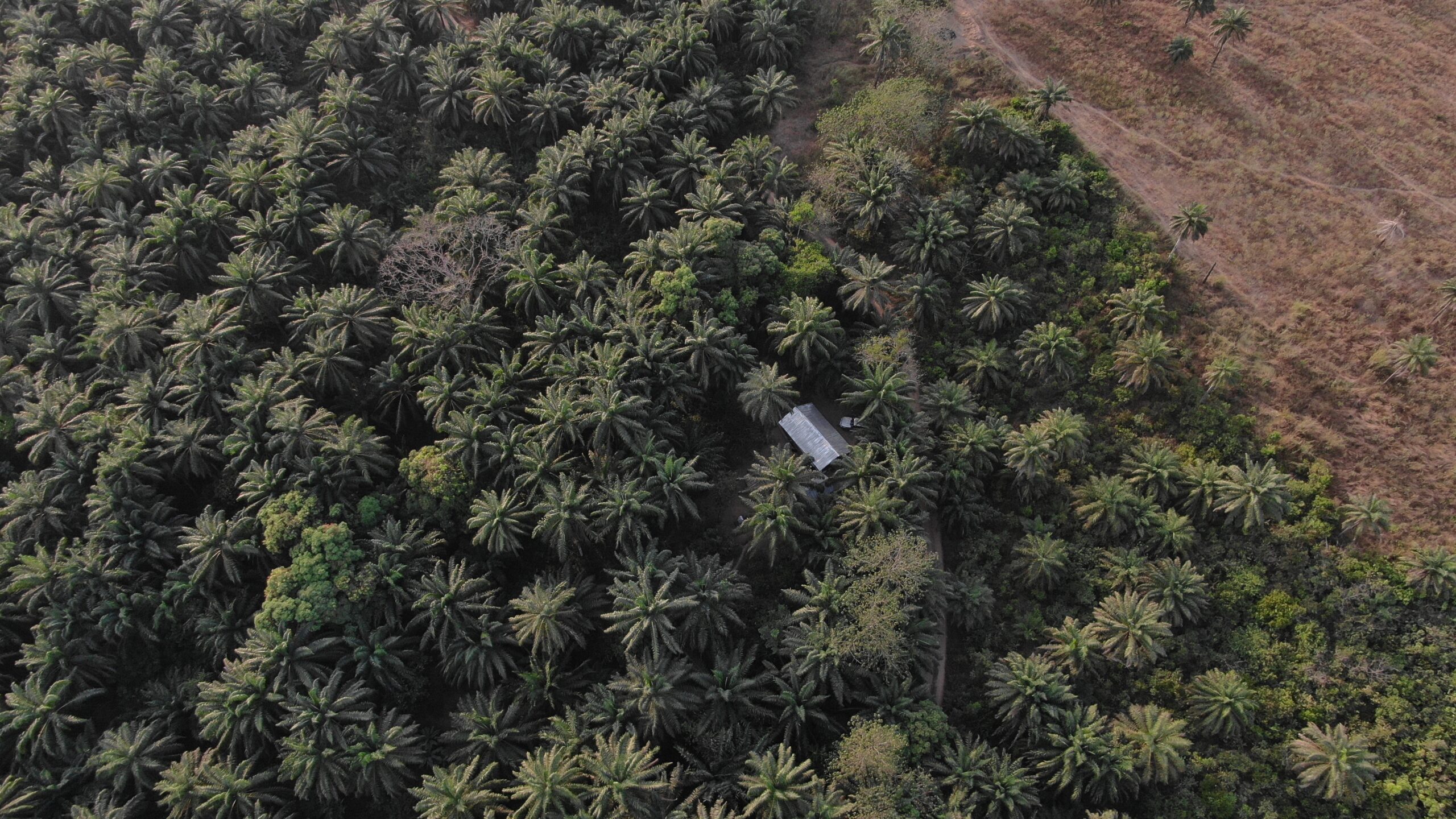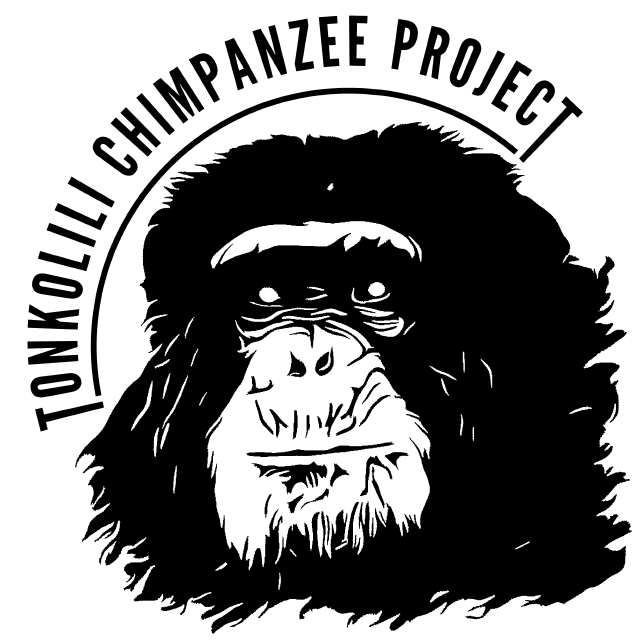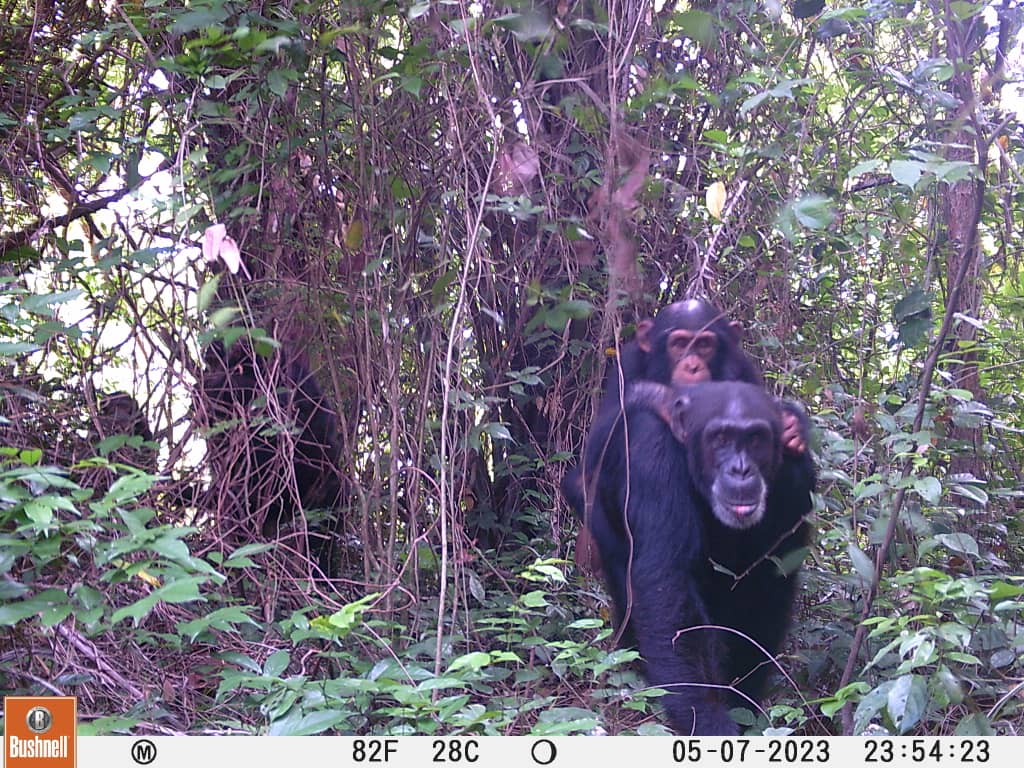
Protecting wild chimpanzees by empowering local communities
Protecting a population
Due to unprecedented rates of deforestation, many chimpanzee communities across West Africa find themselves living in small forest fragments and alongside human villages. In fact, a 2010 census of chimpanzees in Sierra Leone found that most chimpanzees live in these unprotected situations rather than inside forest preserves. The result is an ever increasing frequency of human-chimpanzee interactions. For humans, this means that they often lose crops to chimpanzees. Additionally, chimpanzees can be very dangerous neighbors — with reports of chimpanzee attacks on humans, as well as livestock, being commonplace. This often means that the chimpanzees are hunted by humans, as a means of resource defense. Chimpanzees are also frequently the victims of capture for the illegal pet trade—and researchers estimate that up to 10 adults are killed for every infant that poachers manage to capture. Finally, for both humans and chimpanzees, frequent interactions can lead to disease transmission. In sum, frequent human-chimpanzee interactions, coupled with habitat loss, is a conservation crisis.
The Tonkolili Chimpanzee Project is a not-for-profit 501(c)3 organization seeking to find methods of addressing chimpanzee conservation in a heavily anthropogenic area where human-chimpanzee interactions are common
The Tonkolili Chimpanzee Site
The Tonkolili Chimpanzee Site is located in Central Sierra Leone alongside the Pampana River. The site is home to two communities of chimpanzees. The chimpanzees in this area live in a forest-farm mosaic alongside several human villages. Habitat loss in the region is such that the Tonkolili chimpanzees now rely on the crops grown by humans to survive.
Complicating the circumstances, the humans at this site face extreme poverty. The crops that are destroyed by the chimpanzees represent an extreme problem with significant consequences to the very survivability of the human population. Because of this, chimpanzees in this area were frequently killed prior to 2012.
The Tonkolili Chimpanzee Project initially began in 2012 as an agreement between the local villages and a group of primatologists and conservationists. The villages would receive aide with sustainable agriculture in return for a complete moratorium on killing chimpanzees., Since this time, the project has grown, and members of the local community have become paid staff on the Tonkolili Chimpanzee Project – monitoring the population through camera traps, biological sampling, and observations, while protecting the population from harm.
Information sharing
The Tonkolili Chimpanzee Project seeks to inform other chimpanzee conservation intiatives by sharing what methods have been successful as well as what methods have not worked. The Tonkolili Chimpanzee Project believes that chimpanzee conservation must be centered on empowering local communities to protect the chimpanzees in their area. Therefore, the Tonkoilili Chimpanzee Project can be a tremendous resource to other community-based approaches to conservation.
Mailing Address
P.O. Box 736 Loxahatchee, FL 33470 USA


